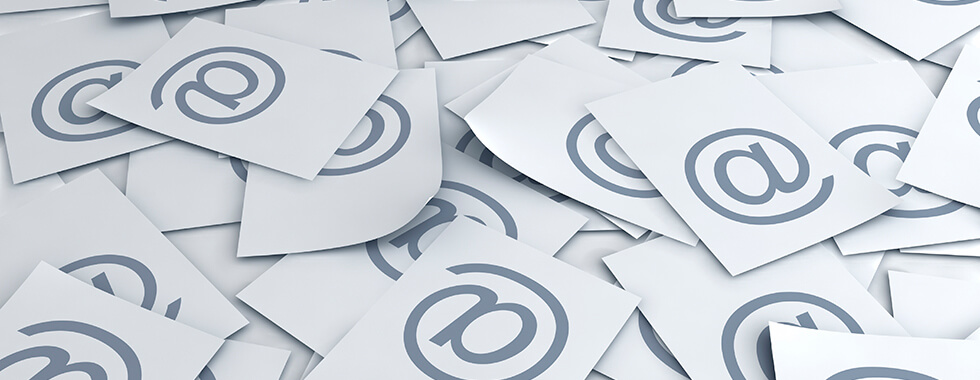Are you guilty of these bad email habits?
You can make sure you’re making the most of your calls and new business prospects by avoiding these email mistakes.
- Long e-mails. You and your clients are probably getting inundated with more e-mails than ever before, which means you have less time to read and respond to each incoming message. Be part of the solution, not the problem, by keeping your e-mails short and direct.
- Being vague. Always be as specific as possible. If you don’t have all the information on-hand, wait to send your message until you do. It will save you and your client endless back-and-forth e-mail exchanges.
- Repeated e-mails over a short period of time. Don’t send your clients–or anyone–numerous e-mails about the same subject matter over a short period of time. If the matter is time-sensitive, provide a due date for a response and think about following up with a phone call.
- Attempts to be clever. The thing about e-mails is that they’re not a great way to express tone or voice. If you pride yourself on your sharp sense of humor, keep it verbal and off-the-record and don’t try to work it into messages to your clients. All attempts to do so may alienate or offend them.
- Burying important questions. Have an important question you need answered? Don’t bury it beneath layers of small talk. Get straight to the point.
- Starting new threads for messages that could all be in a single thread. Do you need to inform your client about a change in an existing product or inform them about the possibility of upgrading to something better suited to their needs? Find the most recent e-mail thread related to this discussion and pick it up from there. Pro-tip: Make sure you change the subject line to reflect your reason for e-mailing. This lets the client know the context of the e-mail and saves you the trouble of having to restate your reason for e-mailing.
- Not minding your caps-lock. There’s an old saying that goes, “Dress for the job you want, not the job you have.” The same rings true for how you stylize your e-mails. If you want your clients to perceive you as trustworthy, reliable, and professional, pay attention to your grammar in your e-mail. For many clients, all it might take is poor grammar for them to find another broker or agent.
- Not minding the Priority flag. If you mark everything as high-priority, soon everyone will assume nothing’s really all that high-priority. Use this sparingly.
- Marking everything as “URGENT.” Same as above; if everything you send is “URGENT”, then soon everyone will assume that nothing you send is, in all actuality, that urgent at all. You don’t want to be the boy who cried wolf.
- Following up too quickly. Excited about landing a new client or selling in a new product or policy? That’s great! However, don’t let that excitement turn make you appear desperate. Wait a few days, even a week, before following up.




